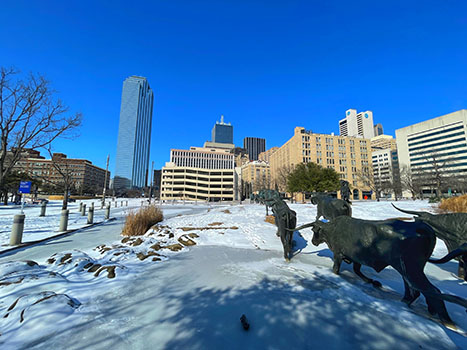Universities Offer Warming Stations to Those Without Power
A series of winter storms blew through the U.S. this week, bringing record-breaking low temperatures and leaving millions without electricity. In response, many universities are setting up warming stations to give both students and the community at large a place to take refuge against the cold.
Texas A&M University welcomed individuals and families from College Station to Reed Arena, the home site of its men’s and women’s basketball teams. The university noted that, upon opening, there would be “minimal amenities” available—that is, no cots, food, or warm beverages. The facility was warmed to 70 degrees and was expected to remain open until at least noon on Friday, Feb. 19. The university strongly recommended bringing masks to wear while indoors, and they stated that social distancing procedures would still be put in place to prevent the spread of COVID-19.

The University of Texas at San Antonio offered up the JPL Library and the ground floor of its Main Building. It welcomed students, faculty, and staff to set up camp, recharge any necessary devices, and access the WiFi network between Wednesday, Feb. 17, and Friday, Feb. 19. The university did note that because of the campus closure and COVID-related concerns, the warming stations would not be available overnight.
Meanwhile, Texas State University made use of its campus shuttles as “warming buses” for students living on and off campus. They stationed the buses at various places on or near campus, cautioning students that the temporary shelters were for daytime use only. The university continued to deploy new buses at new locations into Wednesday evening. All campus COVID-19 protocols, including mask-wearing and physical distancing, remained mandatory.
Eastern Kentucky University opened the EKU Student Recreation Center to university employees, students, and their immediate family members from the same household. The warming station is available during normal hours of operation through at least Sunday, Feb. 21. Again, all coronavirus-related precautions remain in place.
More warming centers continue to open as the need arises. Check with your local college campus or local news stations if you and your family need a place to keep warm.
About the Author
Matt Jones is senior editor of Spaces4Learning. He can be reached at [email protected].